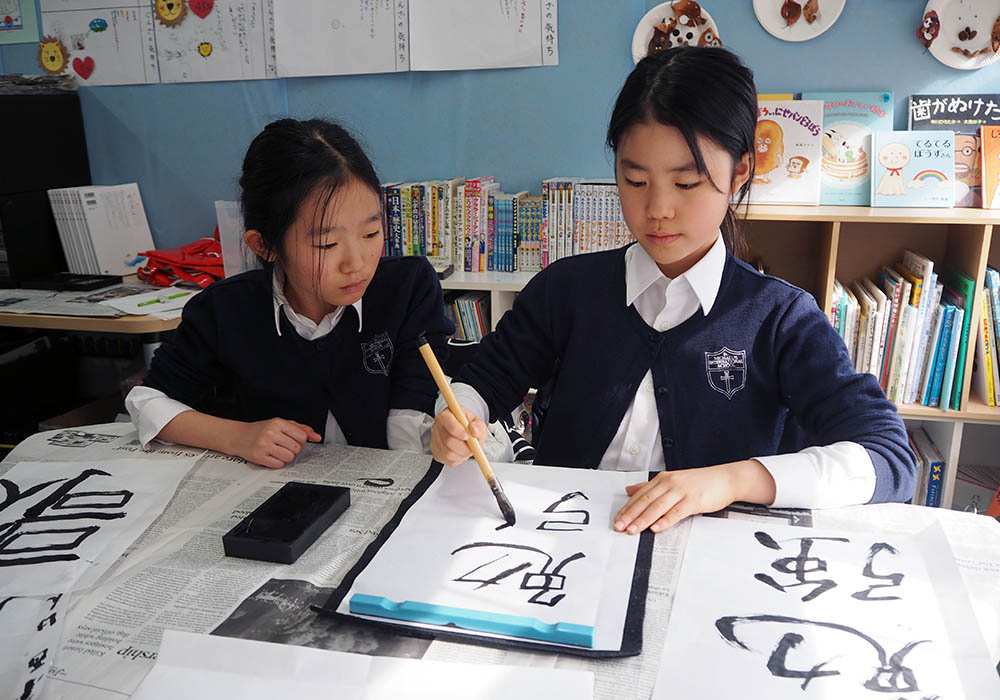
Japanese Language Programme
The goal of the Japanese Language (JL) Department is to provide each child with the best possible language learning opportunities, develop international-mindedness, as well as foster a sense of pride as a child develops their Japanese language skills. Our aim is that by the end of Year Six, all children will be equipped with skills to confidently navigate the intricacies of the Japanese language and culture.
Year One
Year One is split into two evenly balanced language groups. Two specialist Japanese teachers use the same curriculum with an emphasis on speaking, listening and learning skills.
Year Two to Year Six
The makeup of groups will vary depending on learner needs within the year group. In some cases, learning in Japanese groups will be based on material from the national Japanese ‘Kokugo’ programme. This programme aims to support children in the development of the key literacy skills, based on the national curriculum recommended by the Ministry of Education, Science and Technology in Japan.
For learners with beginner or developing Japanese language skills, we have an adapted Japanese Curriculum to provide access to the learning. Again, this will be taught depending on the proficiency and demographics of each class. In this programme there is a strong emphasis on developing speaking and listening skills, alongside the development of basic reading and writing literacy skills.
Learning Enrichment for Japanese
The Japanese learning enrichment teacher provides learning enrichment support to a variety of learners. Depending on the needs of the learners and the class demographics, support can be targeted at either beginner, intermediate or advanced learners.
Japanese Cultural Events
Japanese traditional stories and cultural events are introduced during the lessons throughout the year. Cultural activities take place on a monthly basis, in which the pupils are given first-hand experience of learning and enjoying some of the most famous and popular Japanese cultural practices, which include:
- Flower arrangement
- Tea ceremony
- Kendo (martial art)
- Japanese calligraphy
- Visits to shrines
- Dolls’ Festival
- The children’s day celebration
Japanese Assembly
The children in Year Five and/or Year Six are given opportunities to demonstrate their Japanese language skills through singing, dancing and acting based on traditional stories and folktales during Japanese assemblies.
Japanese Home Learning
Home Learning is provided on a weekly basis and set according to their abilities.
Japanese Clubs
In order to support and strengthen language skills further, children are encouraged to participate in Kanji clubs and Japanese language clubs.

